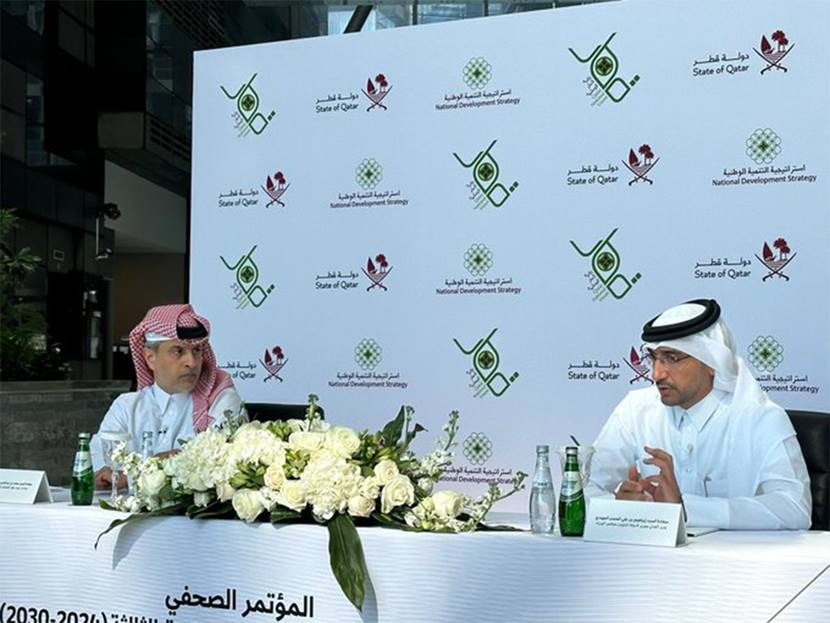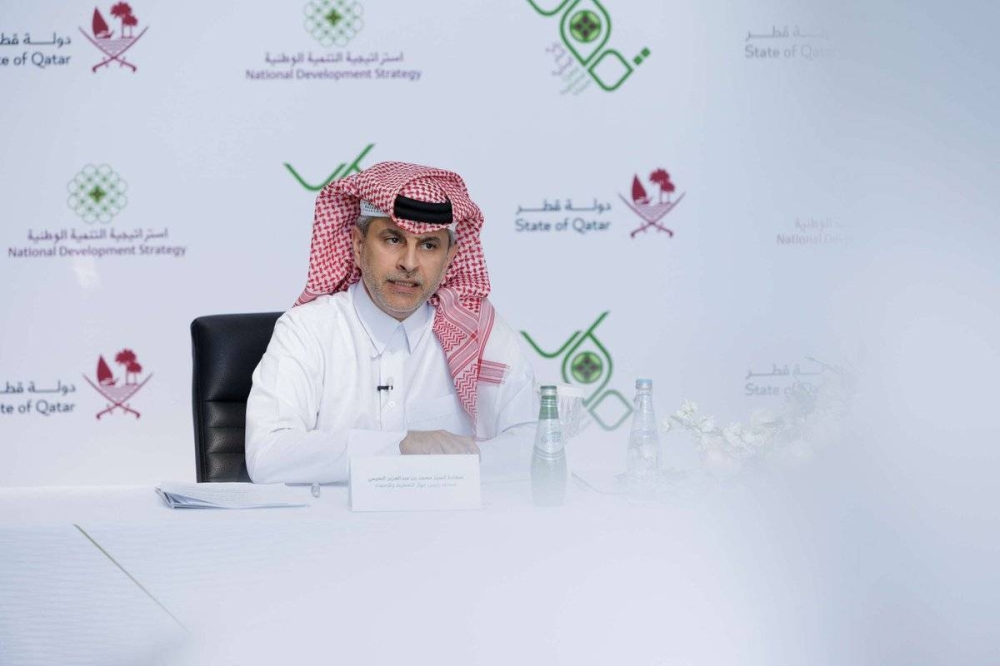Qatar has launched its Third National Development Strategy (NDS3) for 2024-2030, marking the final phase in achieving the Qatar National Vision 2030. This comprehensive plan aims to transform Qatar into an advanced society capable of sustainable development while providing a high standard of living for its citizens. As the nation continues to progress, the strategy outlines critical economic, social, and environmental initiatives to shape the country’s future.
Key Pillars and Objectives
NDS3 is built upon four foundational pillars: human, social, economic, and environmental development. The strategy focuses on enhancing national competitiveness, fostering innovation, and ensuring institutional excellence. The government aims to strike a balance between sustainable economic growth and social cohesion, ensuring that progress benefits all sectors of society.

One of the core objectives of NDS3 is to establish Qatar as a globally competitive economy while maintaining a strong commitment to sustainable practices. By strengthening economic resilience, enhancing government services, and investing in workforce development, Qatar aims to create an inclusive and prosperous society.
Economic Growth and Diversification
A primary goal of NDS3 is to accelerate economic growth, with an average annual increase of 4% until 2030. This will be achieved by expanding gas production, encouraging foreign investments, and promoting economic diversification. The government envisions a transition from an energy-dependent economy to one that thrives on innovation, technology, and knowledge-based industries.
Qatar aims to position itself among the top ten global destinations for investors and multinational companies. To achieve this, the government will create specialized economic clusters, streamline business regulations, and foster a robust innovation ecosystem. These initiatives will attract both local and international businesses, boosting the country’s economic potential.
Another key aspect of the strategy is to increase workforce productivity by 2% annually. This will lead to the creation of high-skill, high-wage jobs and a more competitive labor market. By investing in research and development, Qatar seeks to establish itself as a leader in fields such as artificial intelligence, cybersecurity, and green technology.
Financial Sustainability and Fiscal Reforms
To ensure long-term financial resilience, NDS3 outlines a sustainable medium-term public budget framework. This plan includes diversifying revenue sources, improving fiscal management, and reducing public debt. By implementing these measures, the government aims to mitigate the impact of global economic fluctuations and enhance the efficiency of public spending.
A significant focus of NDS3 is on reducing reliance on oil and gas revenues. Qatar plans to strengthen its non-hydrocarbon sectors, such as tourism, logistics, and financial services, which will contribute to economic stability and growth. The country also aims to foster a culture of entrepreneurship by supporting small and medium-sized enterprises (SMEs) and startup ecosystems.
Workforce Development and Employment
The strategy seeks to increase the proportion of skilled workers to 46% by improving recruitment policies and implementing skill-building programs in government institutions and private enterprises. Education and vocational training programs will be aligned with market needs to ensure that Qatari youth are equipped with the skills required for the future job market.
Additionally, NDS3 aims to employ over 20% of the Qatari workforce in the private and joint sectors. To achieve this, the government will introduce initiatives that encourage private-sector employment of Qataris, offering incentives for companies that prioritize local talent. The goal is to create a competitive and diversified workforce that contributes to national economic growth.
Qatar also plans to implement policies that enhance work-life balance, particularly for women in the workforce. Initiatives such as flexible work arrangements, childcare support, and career development programs will help increase female workforce participation and promote gender equality in various sectors.
Social Cohesion and Family Support
NDS3 places a strong emphasis on strengthening families, which are considered the foundation of Qatari society. The strategy includes initiatives aimed at supporting marriage, promoting positive parenting, and encouraging work flexibility for women. Family-friendly policies will be introduced to ensure that work obligations do not interfere with familial responsibilities.
One of the key goals of the strategy is to raise the fertility rate to an average of three births per woman. This initiative aligns with Qatar’s vision of maintaining a strong national identity and ensuring a stable population growth rate. Policies supporting maternity and paternity leave, financial incentives for families, and access to high-quality healthcare services will play a crucial role in achieving this target.
Additionally, NDS3 aims to strengthen national identity by promoting Qatari culture, heritage, and traditions. Investments in arts, media, and cultural industries will be made to foster a sense of pride and belonging among citizens. The government will also encourage the production of high-quality content that reflects Qatar’s values and aspirations.
Environmental Sustainability and Climate Action
Qatar remains committed to environmental sustainability and has set ambitious targets for reducing greenhouse gas emissions by 25% by 2030. The strategy includes measures such as optimizing electricity and water consumption, improving production efficiency, and encouraging the use of sustainable transport solutions.
One of the major environmental initiatives under NDS3 is the development of a circular economy, where waste is minimized, and resources are reused or recycled. The government will also promote sustainable urban planning, ensuring that future infrastructure projects align with environmental conservation principles.
Additionally, Qatar aims to enhance its efforts in renewable energy production. The country is investing in solar power and other green technologies to reduce its reliance on fossil fuels and transition towards a more sustainable energy system. By prioritizing clean energy, Qatar is positioning itself as a regional leader in environmental conservation.
Government Services and Digital Transformation
NDS3 aims to improve government services by achieving 90% digitization and increasing customer satisfaction rates to at least 85%. The government will implement digital transformation initiatives that enhance efficiency, transparency, and accessibility of public services.
System integration and data exchange between government entities will be prioritized to streamline processes and reduce bureaucracy. Digital platforms will be developed to facilitate seamless interactions between citizens and government institutions, making services more user-friendly and efficient.
To support this digital transformation, Qatar will invest in cybersecurity and data protection measures to ensure the security and privacy of citizens’ information. By embracing technology-driven governance, the country aims to provide world-class public services that meet the needs of its growing population.
Private Sector Empowerment and Economic Competitiveness
The government plans to empower the private sector by fostering a business-friendly environment and implementing bold economic reforms. By developing competitive economic clusters and encouraging foreign direct investment, Qatar aims to create a dynamic and diversified economy that attracts international businesses.
The strategy also focuses on enhancing the role of the Qatar Investment Authority (QIA) and national companies in driving economic growth. By leveraging state resources and expertise, the country aims to strengthen its position as a global investment hub.
Additionally, Qatar will continue to support SMEs and entrepreneurs through funding programs, business development initiatives, and mentorship opportunities. These efforts will help create a thriving business ecosystem that fosters innovation and long-term economic sustainability.
International Commitments and Global Partnerships
Qatar reaffirms its commitment to international peace, stability, and multilateral cooperation. The country will continue to support global partnerships and diplomatic efforts aimed at resolving conflicts through peaceful means.
Qatar’s role in international development and humanitarian aid will also be strengthened under NDS3. The country plans to increase its contributions to global sustainability initiatives, ensuring that its development aligns with international best practices.
Conclusion
The Third National Development Strategy 2024-2030 outlines Qatar’s ambitious roadmap toward sustainable development and economic prosperity. By focusing on economic diversification, financial sustainability, workforce development, social cohesion, environmental conservation, and enhanced government services, Qatar is positioning itself for long-term success.
With its clear vision and strategic initiatives, Qatar is set to emerge as a global leader in innovation, sustainability, and economic competitiveness. As the nation progresses toward its 2030 goals, NDS3 serves as a blueprint for a brighter and more prosperous future for all Qataris.
Qatar Warns of Halting Gas Supplies to EU Over Due Diligence Fines



